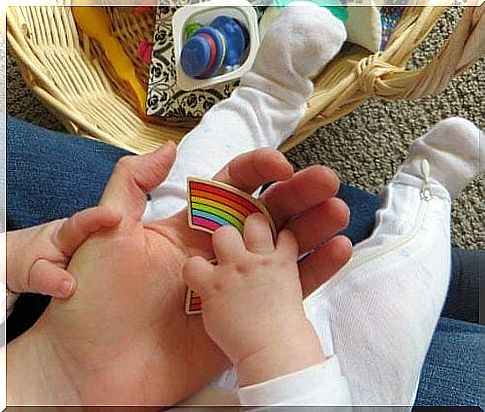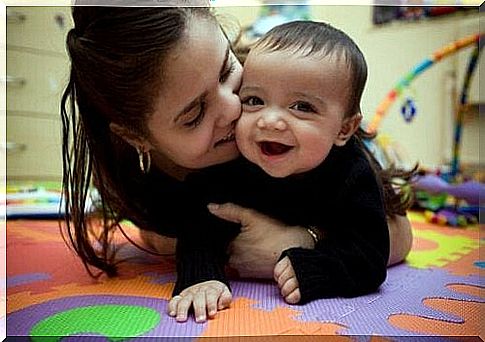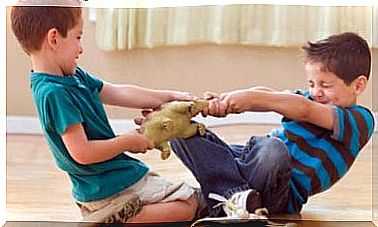Teaching With Love Helps To Memorize Better

To help the child memorize better, we must teach with love. As we all know, in fact, positive stimuli prevail over negative ones. If we want our little ones to remember what they have learned for a long time, we need to start educating them with more loving methods.
Love leaves indelible imprints on people. Remember, it is an invaluable aid in teaching children to memorize faster. In general, the memory of the things we like stays longer in our memory. This is because the emotions we associate with them are positive and therefore more lasting.
It is normal to forget boring episodes or episodes that cause us indifference, because emotionally they have not stimulated us enough. The best memories, on the other hand, usually accompany us for longer. As adults we realize that some things we remember better than others. Well, the same happens to children.

Teaching with love improves memorization
Teaching is a process that requires a lot of patience. That’s why some people do it better than others. In the case of parents, teaching with love is not that difficult. But sometimes we manage to be a little stricter than necessary.
According to specialists, it is easier for newborns to make effective associations when they have received a positive stimulus. This is because emotions also respond positively. Studies have revealed that the best moments are best remembered. Partly because love is capable of activating that area of the nervous system responsible for arousal and attention.
It has been shown that children are able to remember people’s cheerful, angry or sad attitude. This is why, if these emotions are associated with some teaching, they are able to determine a clearer memory. If a person tries to teach a child something while they are angry, they are less likely to be remembered.

It goes without saying that newborns are born with the ability to memorize, which is one of the elements that allows them to discover and identify the context that surrounds them. This does not mean that because they are unable to speak or express what they hear clearly, they do not understand what is happening around them. This is why emotions are a fundamental part of their development.
It may be that children focus more on the emotions conveyed by the person educating them. So, if the message of the latter is accompanied by charisma and a positive attitude, it will create an emotional memory. In this sense we can speak of a certain openness to loving words and a loving attitude, two fundamental elements in interacting with children.
How to make the child memorize better?
As we have already said, the main key for the child to memorize better is love and all the positive stimuli that we can use. It is understandable that children inspire tenderness in us, which is why it is difficult not to teach with love. However, education sometimes requires greater firmness.
Screaming or an angry attitude are common in us adults when we want to educate children. This could be why little ones sometimes seem not to remember what we say to them. In this regard, specialists claim that there is a block in the processing of information expressed with a negative approach.
Specialists therefore recommend teaching with love and taking the following measures:
- Games are ideal for promoting children’s memory. They will learn through fun actions that they will want to remember and then repeat. Songs and rhymes are recommended for younger children. As they grow, educational games can also be played.
- Since they are very small, we can repeat the names of objects and people around them. Little by little they will understand the meaning of many words. In addition, a clear conversation with the child helps him to learn the language faster.
- We can stimulate them to remember when it comes to something important to them. Let’s try to hide a toy for the child to find and help him reflect on where he is.
- We stimulate their concentration so that they are less likely to miss the most important things and learn to remember better.








